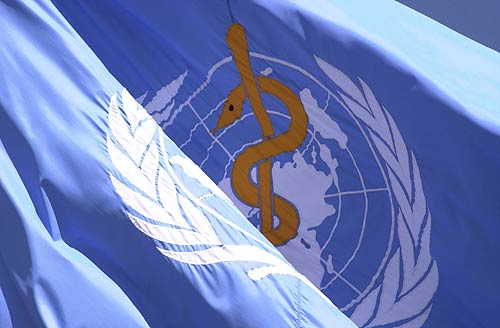
About the author
Mariska Meurs is programme coordinator and senior health advocate at the Wemos Foundation, the Netherlands. She has been strongly engaged in global health governance and related civil society strategy processes. Mariska was the first G2H2 president (2016-17).
G2H2 Members’ blogs
G2H2 members’ blogs are meant to inform and inspire and perhaps promote debate or joint action; they do not represent a consolidated view of the G2H2. To post a blog, please get in touch with the G2H2 Secretariat.
Can the next WHO Director General start on a stronger financial basis?
At the Financing Dialogue held at the WHO last Monday, 31 October 2016, Member States had mixed reactions to the Director General’s proposal to increase assessed contributions by 10 per cent. Is there a window of opportunity now, before the new DG takes office, to put the organization on a more solid financial basis?
By Mariska Meurs*
At the Financing Dialogue, some WHO Member States are making an almost impassioned plea for an increase of assessed contribution – even asking why the DG did not propose a larger increase. Others are hesitating, asking for more information before they can decide and yet others showing some reluctance. The proposal will be further discussed at the upcoming Executive Board meeting in January, when the proposed programme budget 2018 – 2019 is on the agenda.
Since the early 1990s, the balance between assessed contributions from Member States and voluntary contributions from both Member States and other donors has been shifting markedly in favour of voluntary financing. Currently, less than 20 per cent of WHO’s budget consists of assessed contributions. This is problematic because voluntary funding is volatile and comes with strings attached; it is not always in line with programmatic priorities set by the Member States. Important areas of work remain underfunded, such as antimicrobial resistance, the new Health Emergency Programme, noncommunicable diseases, nutrition and health, social determinants of health, and the environment.
The WHO has made important efficiency gains over the last years, improving its efficiency and effectiveness, and expanding its donor base. Whereas some Member States insist on further efficiency gains and finding new donors, an increasing number of them seem to realize that there is only so much one can gain in terms of efficiency and that it is not desirable to make the foremost global norm- and standard-setting health organization more dependent on voluntary, earmarked contributions that may serve special interests.
If you wish to join a G2H2 listserv to discuss strategies for potential civil society action, please let me know.
References
WHO Financing Dialogue 2016, 31 October 2016
- Financing Dialogue Website http://www.who.int/about/finances-accountability/funding/financing-dialogue/en/
- WHO Programme Budget Portal http://extranet.who.int/programmebudget/
- WHO DG Margaret Chan: Opening remarks http://www.who.int/dg/speeches/2016/remarks-financing-dialogue/en/
- Secretariat proposal: Increasing the assessed contribution. http://www.who.int/about/finances-accountability/funding/financing-dialogue/assessed-contribution.pdf?ua=1
- Statements of WHO member states and concluding remarks by WHO DG Margaret Chan: watch the recording of the webstream (afternoon session): http://www.who.int/about/finances-accountability/funding/financing-dialogue/streaming/en/
- Report by IP-Watch: “Chan Issues Clarion Call For Increased WHO Funding”
http://www.ip-watch.org/2016/10/31/chan-issues-clarion-call-increased-funding/
Civil society statement, May 2015
- At the 68th World Health Assembly (2015), WHO Member States refused even to discuss a 5 per cent increase of assessed contributions. Read the civil society statement (also referring to the FENSA Framework on Engagement with non-State actors): http://www.phmovement.org/sites/www.phmovement.org/files/CSOsStatementonNSAsWHOfunding150524EN.pdf
Your feedback is welcome!
Comments on this article are most welcome. Before being able to submit comments on the G2H2 website, please register as a user – and get back to this page afterwards!
